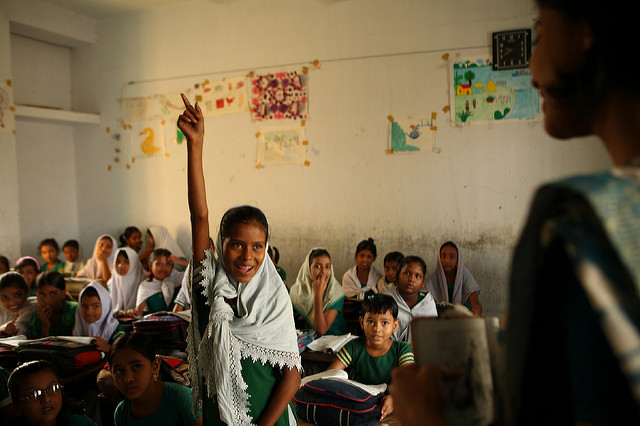Safe Menstrual Practices Important for Progress

UNITED NATIONS, Mar 28 (IPS) - As menstruation continues to be shamed in many communities, one organisation is rising up to the challenge to ensure "safe menstruation for all women of Bangladesh."
Half of the approximately four billion women around the world are of reproductive age. For these women and girls, menstruation is a natural monthly reality. However, a lack of awareness and access to basic health and hygiene products or facilities has turned this reality into a barrier in Bangladesh.
"Menstruation is not an openly discussed topic in Bangladeshi society due to cultural beliefs and social norms around the body and blood," Executive Director of the Center for Research and Information (CRI) Sabbir Bin Shams told IPS.
"Lack of awareness, proper education, economic constraints lead to rising of 'conservative' behaviour which finally impedes lifestyle improvement among girls," he added.
Approximately 95 percent of women in Bangladesh do not use sanitary napkins either because they are unavailable or unaffordable. Instead, women and girls often use old rags and husk sand which often cause severe reproductive health problems such as reproductive tract infections and cervical cancer.
According to the World Health Organization, cervical cancer is the second most common type of cancer in Bangladesh, with approximately 12,000 new cases detected every year and over 6,000 deaths due to the severity of the disease.
Kamrun Nesa Mira saw this firsthand after visiting a remote river island in Bangladesh. After suddenly getting her period, she could not find a shop to buy sanitary pads so turned to a local woman who gave her a piece of old cloth.
While Mira took the cloth as a temporary placeholder, she was shocked and concerned when the woman told her to cover the cloth with sand, realising that many rural women do not practice safe menstruation.
While visiting a nearby school, Mira also found that many girls don't go to school while on their period.
In fact, 95 percent of girls said they felt uncomfortable to go to school or travel during their period due to abdominal pain and the fear of leakage from rags.
This prompted Mira to help establish the All for One Foundation which promotes positive hygiene practices and provide access to affordable sanitary products.
"A natural thing like menstruation cannot be the barrier towards female education and life expectancy. In this context, awareness activities by youth led organisation, All for One Foundation to educate girls and women of underprivileged communities about safe menstrual practices are important for the progress of Bangladesh," Shams said.
The organisation provides menstrual hygiene education not only to girls to prepare them for their first period, but also to male students and parents in order to help break the taboo around menstruation.
"You cannot change the life of a person entirely, but at least you can guide her to the direction through which she can change her own," Mira said.
In the fight to make sanitary napkins more affordable, All for One Foundation found that such products are deemed to be "luxury" products and have an imposed sales tax of 45 percent.
This means a pack of 8-10 sanitary napkins cost between 75 and 140 Bangladeshi Taka (BDT). However, a tea worker earns approximately 85 BDT per day, leaving many women unable to afford sanitary products.
The group has since raised awareness of the issue and has been pushing for a tax exemption at a national scale.
"Sanitary napkins ensure safe menstruation. Menstrual hygiene is a basic right. Menstruation is a health condition and not a disease. And thus, safe menstruation should be accessible to every woman," said All for One Foundation on its website.
While the initiative is still small, it is growing and expanding its reach.
"If organisations and youths play more active and constructive roles in building awareness, social norms and practices can be altered gradually and which may lead Bangladesh to become an inclusive nation," Shams told IPS.
Young Bangla, the largest youth platform in Bangladesh, recognised the outstanding contribution to society and awarded the All for One Foundation the Joy Bangla Youth Award in 2018.
© Inter Press Service (2019) — All Rights Reserved. Original source: Inter Press Service
 Global Issues
Global Issues